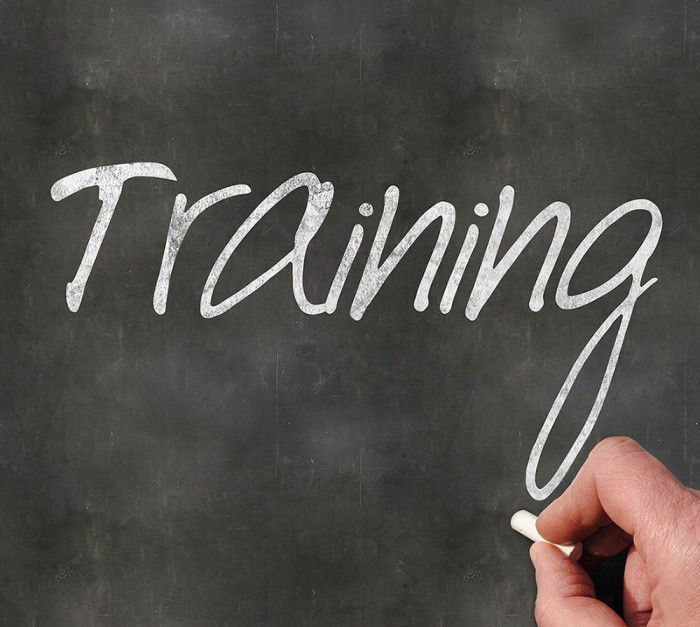We are pleased to announce that the frequently asked questions (FAQ) document for the American Society of Addiction Medicine (ASAM) alignment of Level 2.0 Intensive Outpatient and Partial Hospitalization Services has been posted on the DDAP website.
Gov. Wolf Announces 327,000 Pennsylvanians Will Gain Access to High-Speed Internet through Federal Auction
Harrisburg, PA – Governor Tom Wolf announced today that more than 327,000 Pennsylvanians will gain access to high-speed Internet service through the Federal Communications Commission’s (FCC) Rural Digital Opportunity Fund Phase I auction.
Thirteen providers in Pennsylvania successfully bid in the auction and will provide high-speed Internet access in locations across the state that are underserved or do not have access to broadband that meets the current federal standard. The FCC will allocate $368.7 million to these providers over the next 10 years. Virtually every Pennsylvania county will benefit from the broadband build out supported by this funding.
“In the twenty-first century, reliable high-speed Internet service is a critical utility for homes and businesses alike. The lack of this technology in our communities inhibits our students and educators, businesses, the health care system, and more from truly connecting locally and globally. If we want to support our economy, give our students the tools to learn, and improve the quality of life, we must expand broadband access,” Governor Wolf said. “The current pandemic has vividly demonstrated the pressing need to expand high-speed Internet access to enable telehealth and allow students to connect with their classmates and teachers. As a result of this auction, hundreds of thousands of Pennsylvanians will gain this access, which is a significant step toward bridging the digital divide.”
The Rural Digital Opportunity Fund is an effort by the FCC to ensure high-speed Internet access in underserved communities. In total, the FCC will allocate $9.2 billion to 180 bidders, who will deploy high-speed broadband to more than 5.2 million unserved homes and businesses across the country.
Nearly a million Pennsylvanians lack access to reliable high-speed Internet access according to the FCC. Ensuring that all Pennsylvanians have access to high-speed Internet access is a top priority of the Wolf Administration. The governor’s Restore Pennsylvania plan, a $4.5 billion bipartisan proposal funded through a common sense severance tax, would provide funding to completely bridge the digital divide in every community in Pennsylvania. Funding would be available to support the installation of infrastructure needed to bring high-speed Internet to every corner of the commonwealth.
View more about the plan here.
Wolf Orders Halt on Indoor Dining, Limits to Gatherings Amid COVID-19 Surge
Maher Duessel Seminar on Governmental Accounting and Auditing
DDAP Announces SBIRT Training and Implementation Series
The Department of Drug and Alcohol Programs (DDAP) and the University of Pittsburgh’s Program Evaluation and Research Unit in the School of Pharmacy are leading a series of trainings to promote the practice of SBIRT (Screening, Brief Intervention, and Referral to Treatment) throughout 2021. This training series will provide health-care professionals and students with the opportunity to learn about the evidence-based practice and how to implement innovative practices into the current workflow.
Participants will receive continuing education credits upon completion of the following:
- Part 1: Online, Self-Paced SBIRT Curriculum (6 hours)
- Part 2: Virtual Interactive Skill-Building Seminar (3 hours)
- Part 3: Post-Series Assessment
Registration is FREE and will open in early 2021. See this flyer for further details and stay tuned for more information.
Governor Wolf Tests Positive for COVID-19
MHIDD Professional Development Series Course for Mobile Crisis Responders
A Series of Courses on the Mental Health Aspects of IDD
Registration is open for the next live virtual training course on intellectual and developmental disabilities (IDD) for mental health mobile crisis responders. This is one of three courses in the Mental Health Aspects of Intellectual and Developmental Disabilities (MHIDD) Professional Development Series offered by the Center for START Services. It is highly recommended for the following providers:
- Mobile Crisis Responders, Clinicians, and Supervisors
- Mental Health and/or IDD Case Managers and Service Coordinators
- Emergency Services Clinicians
The course consists of six webinar-style sessions (75 minutes each) that teach best practices in crisis assessment, response, and disposition recommendations. Registration is $149 per person, and participants can receive University of New Hampshire continuing education units and a certificate of completion for MHIDD Mobile Crisis Response Training.
This flyer contains registration information.
Self-Determination Housing of Pennsylvania – Upcoming Free Webinars
Click on each link for a description and to register.
- 811 Project Rental Assistance Overview Thursday, December 10, 2020 from 1:00 pm – 2:00 pm
- Faith Communities and Housing Crises Friday, December 11, 2020 from 1:00 pm – 2:00 pm
- Assistance Animals Explained Monday, December 14, 2020 from 12:00 pm – 1:00 pm
- Eviction Prevention and Processes Wednesday, December 16, 2020 from 10:00 am – 11:00 am
- Addressing a Housing Crisis Thursday, January 7, 2021 from 12:00 pm – 1:00 pm
- Eviction Prevention and Processes Thursday, January 14, 2021 from 1:00 pm – 2:00 pm
- Navigating Income-Based Housing Options Thursday, January 21, 2021 from 10:00 am – 11:30 am
Prepared Renter Education Program Series:
- Prepared Renter Education Program (PREP) Part 1 Tuesday, January 5, 2021 from 10:00 am – 11:00 am
- Prepared Renter Education Program (PREP) Part 2 Tuesday, January 12, 2021 from 10:00 am – 11:00 am
- Prepared Renter Education Program (PREP) Part 3 Tuesday, January 19, 2021 from 10:00 am –11:00 am
For further information, contact Kara Yost.
DDAP Announces Webinar Opportunities
Department of Drug and Alcohol Programs (DDAP) Training: Brain Injury and Opioid Misuse
This training course is designed to assist substance use treatment providers in better understanding the interaction between opioid misuse and brain injury, how associated cognitive impairments impact response to treatment, how to most effectively work with people with brain injuries, and how to adapt treatment for maximum success. The eight-hour virtual course is divided into two parts in DDAP’s Training Management System. Learn more in this flyer.
Life Unites Us: Pandemic Paradigms | Providing Services through the Holiday Season
December 15, 2020 at 12:00 PM
In this webinar, participants will:
- Hear how recovery-focused community-based organizations are dealing with the unique challenges from COVID-19 during the holiday season
- Learn new strategies and get inspiration to tackle these challenges
- Hear from a panel of experts and peer organizations as they share additional challenges and solutions for a path forward
DHS Launches Online Portal for Tracking CARES Act Funding
Today, the Department of Human Services (DHS) is launching an online portal (called the DHS CARES Act Funding Tracking Tool) for Office of Long-Term Living (OLTL) providers to submit final costs in compliance with Act 24 of 2020 (CARES Act funding). DHS is requesting that providers complete the COVID-19 Act 24 cost reporting form and upload it through the online portal. Providers must keep all documentation related to the costs reported in the final cost report for a minimum of five years. The due date for the submission of the required final report has been extended to December 31, 2020.
To assist providers, DHS has provided the following guidance and tips:
- Username and Password Credentials
- If you are a new user, you will receive two emails from PW, Unified Security inbox The first email will contain your username. The second email will contain your temporary password for first-time sign in.
- If you have an existing Commonwealth Business Partner account (“b-” ID), you will receive a username reminder email tomorrow. Please use this username to login to the tool.
- Updating Provider Contact
- If you will not be completing the final report for your organization and would like to change the user associated, please complete the DHS COVID Tracking – User Change Request form to start the process to set up their credentials. Note that this process may take a few business days.
- Attestation
- When completing the report for your entity, an attestation is required. The attestation language is as follows: I, [ENTER NAME OF PERSON WITH THE AUTHORITY TO SIGN ON BEHALF OF THE LEGAL ENTITY BELOW], certify, subject to the terms and penalties of 18 Pa. C.S. §4904 (relating to unsworn falsification to authorities), that the information contained in the forgoing Act 24 Cost Reporting Form is true and correct to the best of my knowledge following reasonable investigation, that the entity that I represent was in operation as of March 31, 2020, as required by Act 24 of 2020; and that the Act 24 of 2020 funds were used to prevent, prepare for, and respond to the coronavirus pandemic and reimburse health-care-related expenses or lost revenues attributable to the coronavirus pandemic; and that the Act 24 of 2020 funds were not used for expenses or losses that have been or will be reimbursed from other sources.
- Final Report Template
- Providers are required to upload the completed Excel template when completing the final report in the online portal.
- Online Portal Training and Support
- Providers will receive a detailed DHS CARES Act Funding Tracking Tool Final Report User Guide with frequently asked questions (FAQs) on the launch date to help you navigate the new tool, answer any questions you may have, and provide troubleshooting information on browsers and passwords.
- Act 24 of 2020 Information
- Governor Wolf signed Act 24 of 2020, which allocates funding from the Federal Coronavirus Aid, Relief, and Economic Security Act – also known as the CARES Act – to assist providers with COVID-19 related costs. Funding from Act 24 must be used to cover necessary COVID-19 related costs incurred between March 1, 2020 and November 30, 2020 that have not been otherwise reimbursed by federal, state, or other sources of funding. To qualify for the one-time payment, a person or entity must have been in operation as of March 31, 2020. Under Act 24, $457 millionof COVID-19 relief funds were allocated to providers in OLTL programs.
- Any person or entity accepting a COVID-19 payment must provide documentation to DHS, upon request, for purposes of determining compliance with Act 24 requirements. Providers were previously advised to keep documentation to demonstrate how the funds were used for a response to the COVID-19 pandemic in case of an audit.
- Providers are advised to review guidance such as the following for eligible COVID-19 costs on the US Department of Treasury website: Coronavirus-Relief-Fund-Guidance and Coronavirus-Relief-Fund-Frequently-Asked-Questions. DHS guidance is also available in DHS Frequently Asked Questions.
Please Note: if you received a payment under Act 24 of 2020 from more than one Pennsylvania DHS program office, you may receive this notification more than once. However, you will only receive one login to the online portal and will be able to submit for all program offices and facilities at the same time.
















